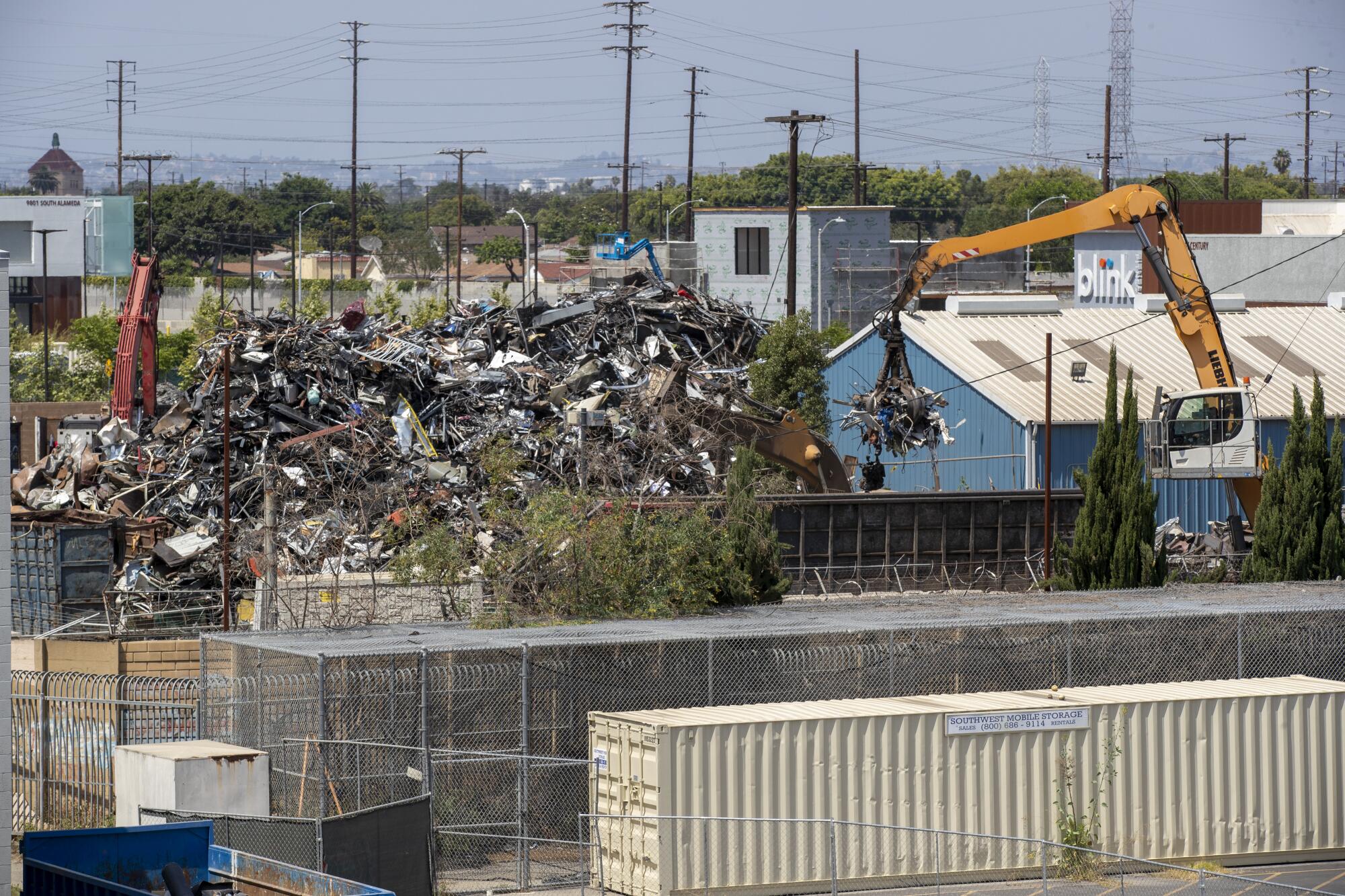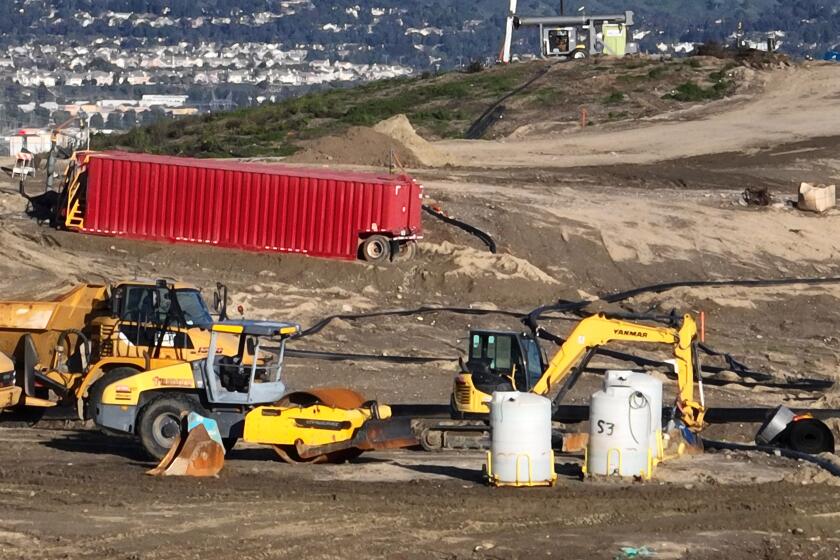- Share via

The U.S. Environmental Protection Agency has ordered a scrap metal recycler in Watts to take action to prevent chemicals from washing into local storm drains and drifting onto the campus of a neighboring high school.
Federal regulators are requiring S&W Atlas Metal & Iron, one of the city’s oldest metal recyclers, to upgrade its stormwater treatment system and limit metallic debris from migrating off its property. The facility is next to Jordan High School, where students and staff have long complained that school grounds have been coated in metallic dust and pelted with metal shrapnel.
In recent years, as heavy rains have showered Los Angeles, the scrap yard’s operations have allowed polluted stormwater to drift onto the high school grounds, according to the EPA.
The U.S. EPA is tightening national standards for fine particulate matter — a health threat that has been linked to lung and heart disease.
Federal investigators also found stormwater discharged from the facility contained copper, iron, zinc and aluminum above federal standards. This industrial wastewater flows into Compton Creek, a tributary of the Los Angeles River.
Federal regulators accused Atlas’ operators of not implementing the proper controls to mitigate pollution from leaving their site. It called on Atlas to make improvements to its stormwater management system to comply with federal water pollution rules, or else the facility could face civil penalties.
“Tackling the harmful pollution carried in stormwater is a vital part of the Clean Water Act. This order requires Atlas to improve their stormwater treatment and eliminate any water pollutant discharge from leaving the site and reaching Jordan High School,” said Martha Guzman, EPA Region 9 administrator. “EPA is committed to protecting human health and the environment by reducing exposure to lead and heavy metals, especially for children and communities with environmental justice concerns.”
LAUSD Superintendent Alberto Carvalho applauded the federal intervention, saying he hope it serves as a stern warning for other polluters that are located near district campuses.
“It sends a powerful message, not only to [Atlas], but to other entities whose close proximity to schools and to residences poses an imminent health risk. And this isn’t just symbolic in this case. It will go a long way in terms of empowering the district with future actions to protect the health and well-being of our students and the community surrounding our schools.”
The U.S. EPA orders Chiquita Canyon landfill to take immediate action to safeguard the public. Meanwhile, nearby residents have filed suit to close the facility.
Under the agreement with the EPA, the facility operators have vowed to comply with federal water rules, although they did not admit to wrongdoing.
“Atlas Iron and Metal is committed to safe, responsible, and environmentally conscious operations in Watts,” said a spokesperson for Atlas. “The agreement to further enhance our existing stormwater management program reaffirms that commitment to the community and our neighbors, which extends to working cooperatively and in good faith with government regulators.”
Atlas Iron & Metal has been mired in legal issues over the last several years. In 2020, Los Angeles Unified School District has filed a federal lawsuit against the facility for “continuing to allow dangerous, sharp metal projectiles, fine metallic dust and other objects to be launched or emitted from their property.” Soon after, the Los Angeles City Attorney also sued the facility alleging, in part, that its scrap metal piles and a makeshift wall of cargo containers violated city rules.
Last year, Los Angeles County Dist. Atty. George Gascón charged the company and its father-and-son owners, Gary and Matthew Weisenberg, with 22 felonies and two misdemeanors. The criminal complaint alleges the scrapyard illegally disposed of hazardous materials, including brain-damaging lead, on at least five occasions between July 2020 and August 2022.
Their next scheduled court date is April 24.
Toward a more sustainable California
Get Boiling Point, our newsletter exploring climate change, energy and the environment, and become part of the conversation — and the solution.
You may occasionally receive promotional content from the Los Angeles Times.









